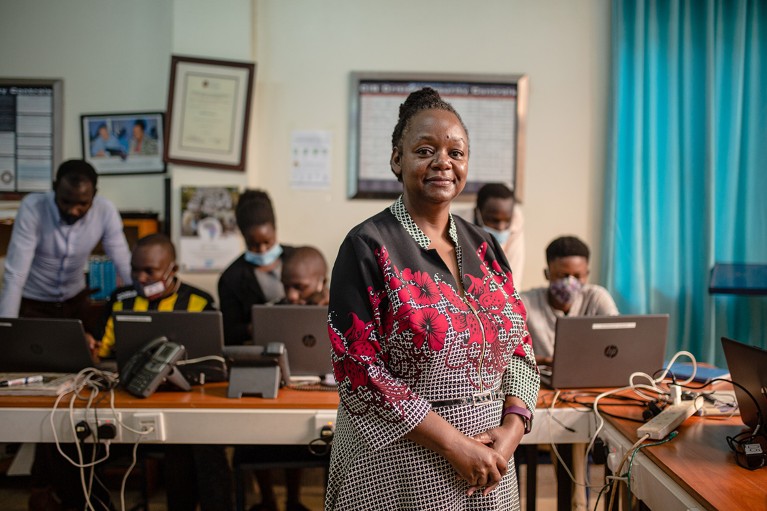In this photo, taken in December 2020, I am reviewing students’ progress in a computer networking course at Makerere University in Kampala, Uganda, where I teach electrical engineering and telecommunication policy. The students are learning to configure computers to accommodate Voice over Internet Protocol, or online telephony. We’ve also explored the programming language Python, and technologies for radio and wireless applications.
The six-month programme is part of a first-ever partnership with the Jesuit Refugee Service (JRS), an international Catholic organization that advocates for people who have been forcibly displaced. Uganda, where I was born and raised, hosts one of the largest refugee populations in Africa.
The JRS selected the course’s 2 female and 17 male participants, and we completed it in January, despite a delay to in-person teaching caused by the pandemic. The students’ new skills will help them to compete in the job market.
When I’m not teaching, I research ways to improve network connectivity. I’m mainly interested in ensuring Internet access in rural communities, where most Ugandans live.
As a woman who works in science, I try to promote initiatives that will boost female inclusion in science and technology. One example is the Uganda Women Entrepreneurs Association, which supports aspiring female business leaders.
I’ve also launched projects to get more women into engineering. In 2017, when I was president of the Uganda Institution of Professional Engineers (UIPE), I founded its Committee of Women Engineers, Technologists and Technicians. I also helped to organize training for female engineers that tripled women’s share of the UIPE’s membership to 10% of the total.
Inclusion is a revolution that is yet to be accomplished.


 Building a university to deliver work-ready engineers
Building a university to deliver work-ready engineers
 Inspiring confidence
Inspiring confidence
 The jet engineer
The jet engineer







